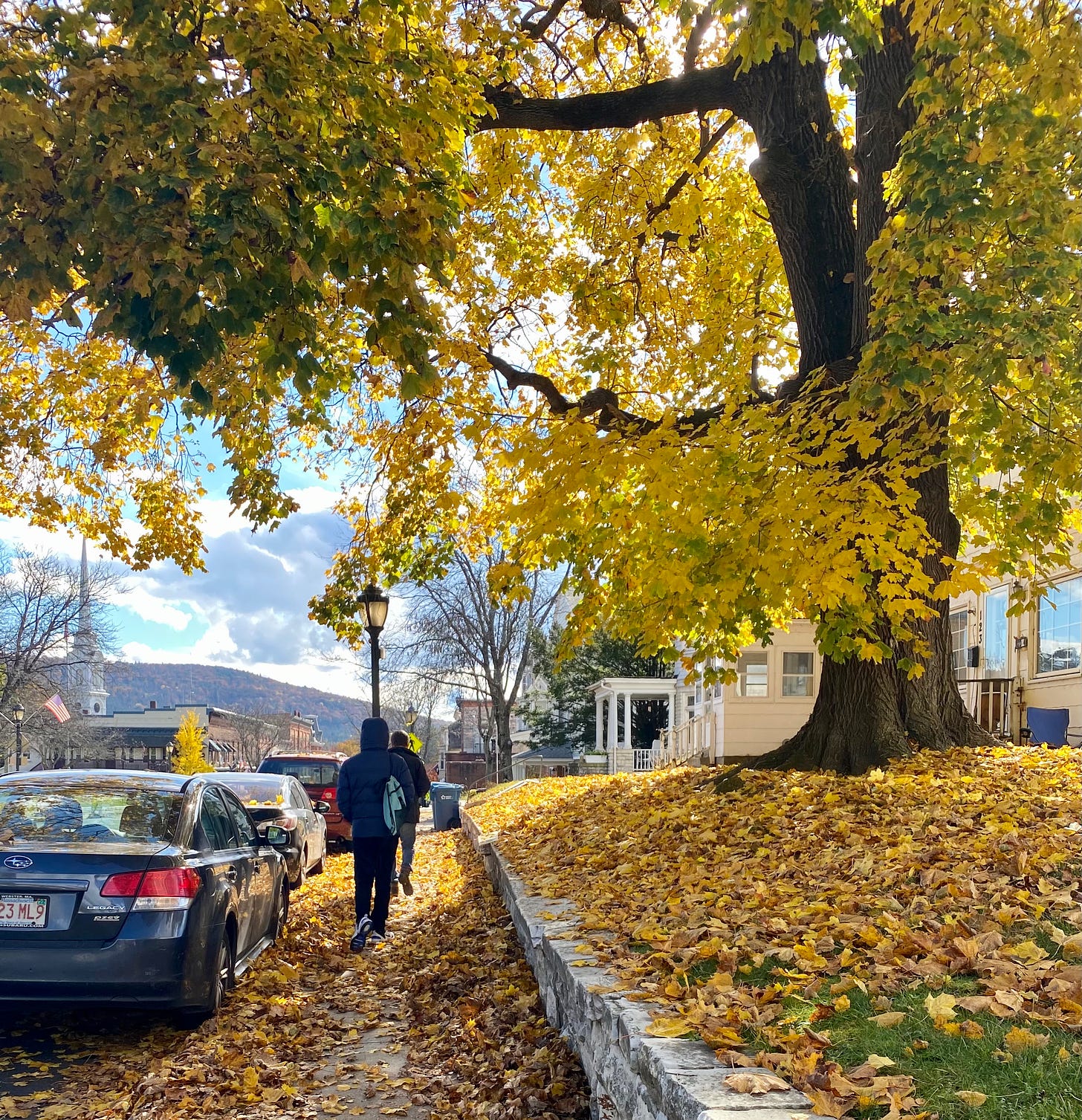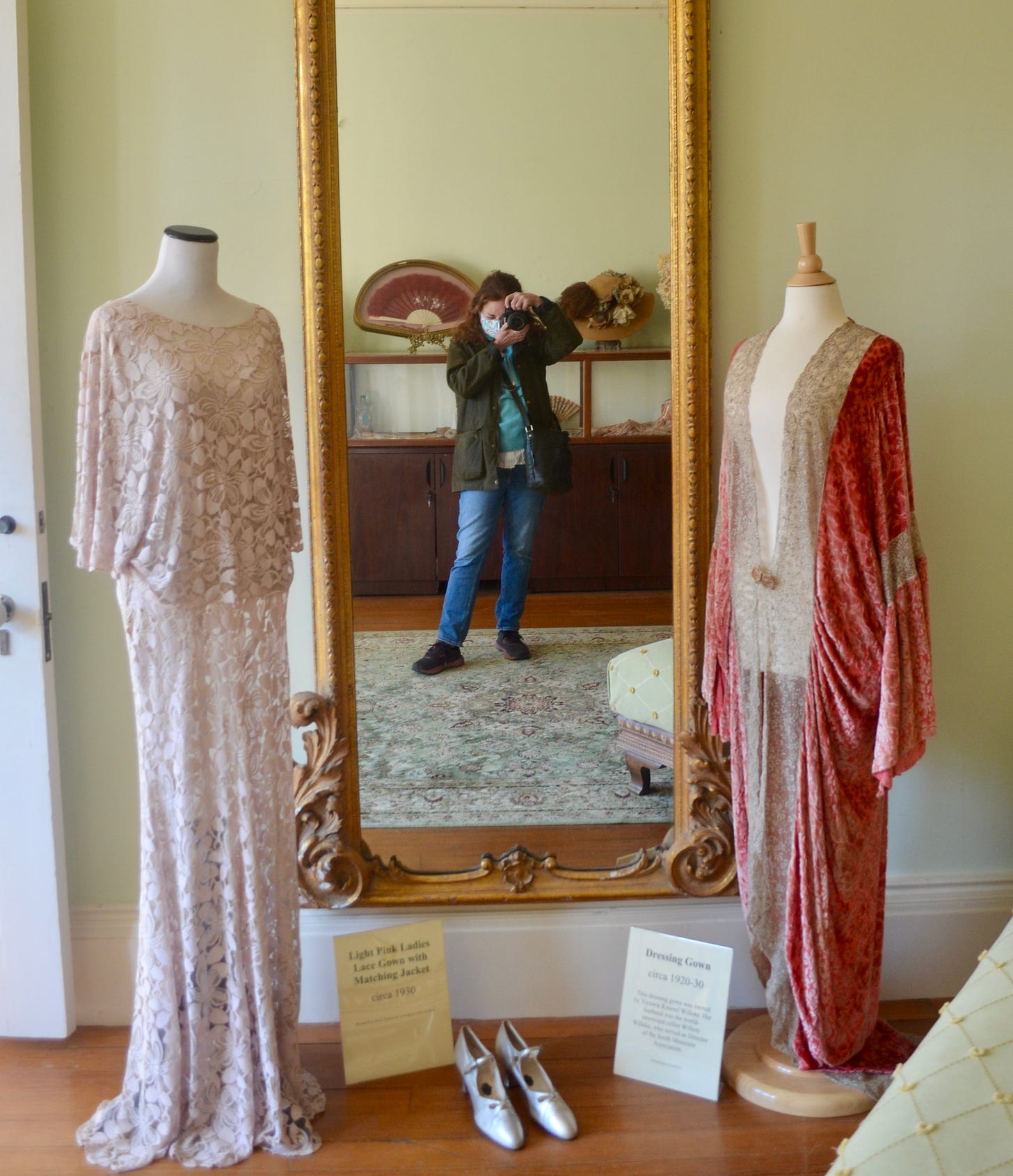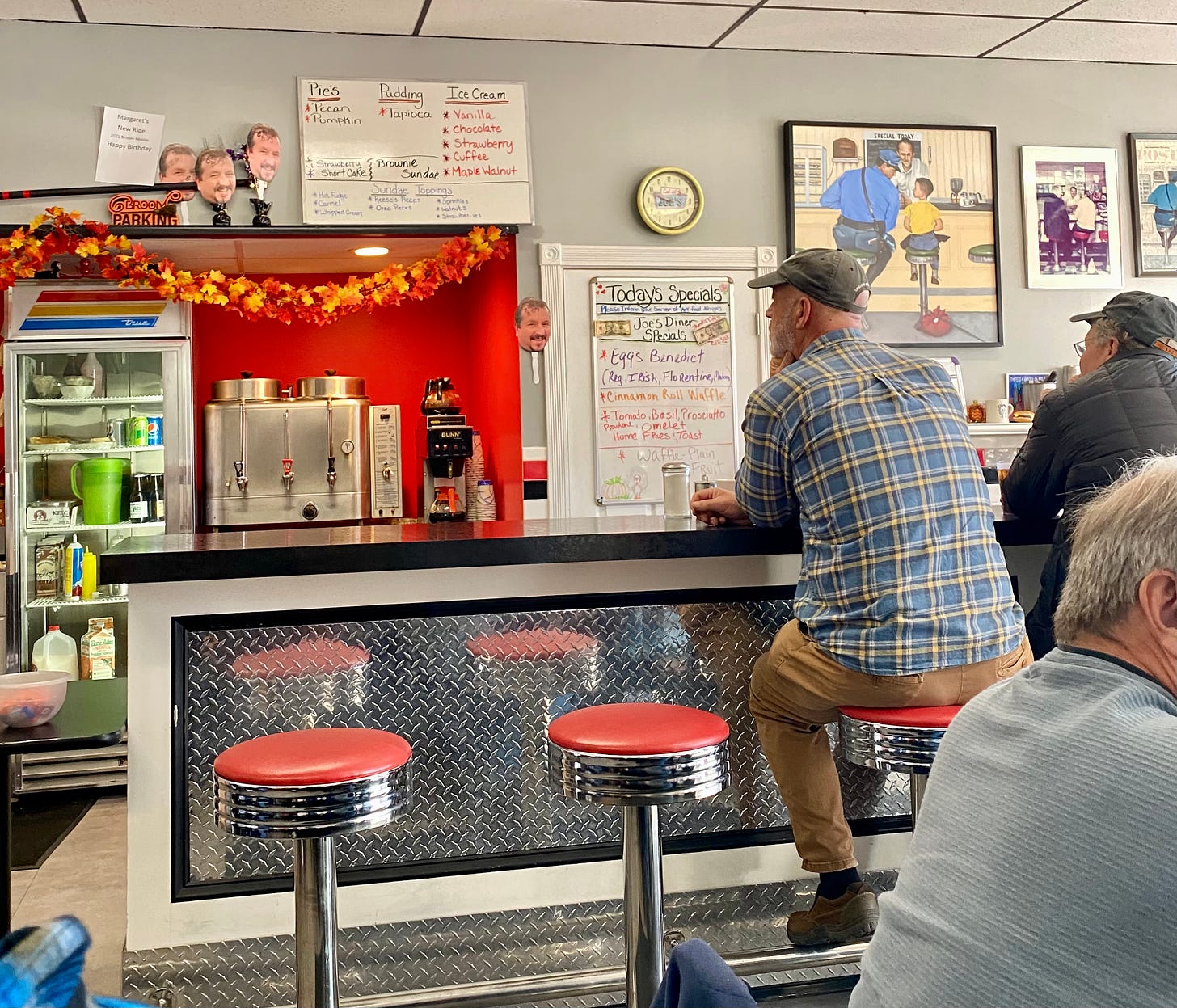One week past “peak foliage,” yellow leaves still clung to the trees, but a cold blast of air from the North made us up flip up the collars of our coats. In that western edge of Massachusetts, Steve and Ian and I spent a few days looking at turn-of-the-century mansions and eating delicious bacon-y sandwiches in nearly deserted restaurants - the second homers and leaf tourists were long gone. However, we were not there for the clinging leaves and the bacon. We drove 2-1/2 hours north to check out a school for young adults with high functioning autism.
Ian is currently learning job skills in our public school’s 18-21 program and taking a math class at the community college. For various reasons this situation is not ideal, so I am looking at alternatives. Relying mostly on the underground disability parent network and an $800 conversation with an education consultant, I assembled a small list of private programs for disabled young adults aged 18-30.
These schools are small and focused on particular sub-types of disabled people. Since they are residential, they are able to draw a nation-wide, and in some cases international, population. Their websites are very specific about their typical student. Some want IQ’s over 90; others under 90. Some specialize in students with behavior problems; others state very clearly that they can’t handle those issues. Since I’m focusing on programs in the Northeast (we don’t want to send him too far away) for students with high functioning autism, my list is rather short.
To be clear, these programs are VERY expensive. The tuition ranges from $50,000 to $200,000 per year. We would rely on our school district to help cover the costs for these programs, but many parents pay the full price tag on their own. This is where rich people put their disabled children. These programs may be the vanguard for how we deal not just with disabled young adults, but all sorts of subgroups that cannot manage in the modern world.
This program was located in the downtown of a town which included two diners, a furniture consignment store, and a Panda Garden Chinese restaurant. In the conference room, we were handed a glossy folder of information and then walked through classrooms where teachers paused their lessons aimed at building executive function skills and life skills. They asked their students to introduce themselves and to tell us one “fun fact” about themselves.
With an extra beat between each word, the young people would cheerfully pause their pacing and smile in our general direction. “Hello! My name is [redacted] and I enjoy playing Super Smash Mario Brothers!”
Closer to a tech nerd than Rainman, Ian wasn’t identical to those kids, but he was close enough. We caught him checking out a cute blond girl, who was glued to her laptop. It is tempting to take him out of a diverse (and rather hostile) world and let him live in a community of people like him.
After the classroom tour, we walked a couple of blocks away to check out the student apartments. The program owns a dozen houses in the downtown area and turned them into apartments for their 35 students. The students live independently with roommates with only basic help from the program staff. The students make group meals and do laundry and learn how to live on their own. Every weekend, the program organizes four social outings for their students.
On top of their social skill classes, student work various jobs in the community or take classes at the community college with transportation and support organized by the program. Basically, this program does everything that we are already doing for Ian, but a program would take that burden off our shoulders, and he would learn independent living skills, which he is not getting here.
Used to our bustling semi-urban area, Ian might not thrive in that deep isolation of that part of the country. However, we have not ruled out the concept of having Ian live in a community with other autistic people. He liked it. It must be nice to be a place where everybody is like you, rather than being on the outskirts of a typical world. The deaf community has long debated the pros and cons of maintaining their own culture or blending into the general population. With the rise of self-identification of high functioning autism and the neurodiversity movement, there is a thriving autism subculture that is resistant to assimilation.
With backlash to institutionalization of the 1970s, disability advocates pushed for community-based living. But those community-based programs have not panned out. There are long waiting lists. After ten year waitlists, folks are isolated in small apartments without integration into the community. So, we’re in a transition period.
I wonder if this program is a sign of things to come. Perhaps these rural locations, which are desperate for new sources of income, will become housing for disabled folks. They are already destinations for retirement communities. Maybe other groups that require government support will be moved to aging downtowns in the edges of our country. Space is cheap. Taxes are low. Geographic resettlement is more than a little scary, but it also might provide some unique opportunities.
Programs for people with high functioning autism teach basic life skills, like managing money, navigating a college campus, and handling an interview. A generation of students are living with the damage from remote education. They may never recover emotionally or academically; they have been rendered disabled in a way. They will need programs like this one. That’s why states are betting on new career training programs.
I’m in the midst of learning about all this stuff, so I don’t have answers yet. I’m not sure what is the best model for helping the semi-educated, the marginally disabled, the square pegs. Should colleges provide better supports? Should we set up little island of supportive communities? Should we set up new job training programs? I’ll keep traveling and asking questions and sharing our stories.
LINKS
Slow work week, because of a cold. Not used to being sick anymore, I’ve been a total baby.
Some museum pictures from our trip on Instagram and the blog.
Bari Weiss and her anti-woke mafia are starting a new university. Good luck with that one. This is all silly-town stuff for me. I could write about it, but I don’t want to waste brain cells.
Crazy jump in prices for used cars and trucks. Why?
Yes, more parents are going to be running for elections in school boards in the near future. Just got off the phone with a local parent on a related matter. Now that schools are open, what’s the next issue going to be? Around here? It’s equity.
As a child of the 1980s and the Preppy Handbook, I am a sucker for some beautiful (and very expensive) Fair Isle sweaters.
At the 74, Beth Hawkins is reporting on new innovative career training programs. Super interesting. LOVE THIS!
Okay, want to hate something? Check out Ivy Getty’s fantasy wedding. Idiotic rich people!
Sad that Powell’s is having a hard time, but online book selling is doing very well.
PICTURE: Edith Warton’s study. Look at those books! I could flip those for so much money!
WATCHING: Succession, Squid Games, Eternals
COOKING: Chicken and black bean burrito’s









Thx for sharing, Laura. I always enjoy your perspective. Our son lives at Chapel Haven in CT. Would be happy to talk further about his experience. You can reach me through Substack anytime.